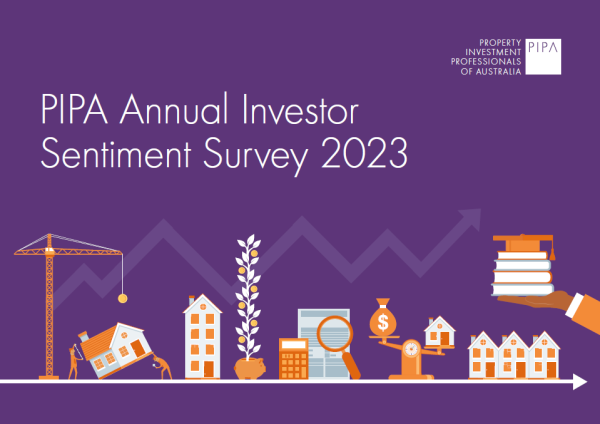On Tuesday evening (6 October), the federal Treasurer Josh Frydenberg presented a range of tax cuts and new spending initiatives, including new write offs for businesses and an additional 10,000 places in the First Home Loan Deposit Scheme.
Until 30 June 2022, businesses with turnover up to $5 billion will be able to deduct the full cost of eligible depreciable assets of any value in the year they are installed.
For small and medium-sized businesses with aggregated annual turnover of less than $50 million, full expensing also applies to second-hand assets.
Small businesses with aggregated annual turnover of less than $10 million can also deduct the balance of their simplified depreciation pool at the end of the income year while full expensing applies.
On SME measures
Reacting to the budget, the Australian Banking Association welcomed the strong focus on support for small and medium businesses and direct assistance to families.
ABA CEO Anna Bligh commented: “Australian banks stand ready to continue their role helping millions of Australians through 2020.
“This budget is a key milestone as we shift from emergency to recovery, from triage to rehabilitation.”
She added: “Government support for small business is vital. Allowing businesses to fully expense investments will provide a much-needed shot in the arm.
“This budget has the right focus on creating jobs and will help chart Australia’s road to recovery”, Ms Bligh said.
Meanwhile, CBA’s group executive for business banking, Mike Vacy Lyle, said the Federal Government’s expansion of the instant asset write-off scheme – coupled with the second tranche of the Coronavirus SME Guarantee Scheme- will enable more Australian businesses to retool and invest for growth.
“There are many support measures in this year’s budget that will help business – particularly those that will now be able to write-off the full value of capital assets purchased until 2022,” Mr Vacy Lyle said.
“This will allow more businesses to invest in assets – like equipment, machinery and vehicles – to set them up for the future. All of this has a huge flow on effect to help keep Australians in jobs and create new ones.
“It’s great news for business owners – and combined with our lending products under the SME Guarantee Scheme –businesses have the added boost of larger and longer term funding assistance, record low funding, and tax cuts.
“Small businesses are the lifeblood of the economy and as Australia’s largest bank, we will continue to do what we can to ensure they are supported and set up for success into the future.”
NAB CEO Ross McEwan also suggested that the path is now for Australia’s economic recovery and rebuild from COVID-19, with a clear focus on supporting Australian businesses to lead that effort.
“Business will drive our economic recovery. We must do everything we can to support and strengthen businesses right now and the Budget measures announced by the Government will certainly help to do that as we begin to transition from support to stimulus,” Mr McEwan said.
“In particular, the tax incentives to encourage businesses to invest and wage subsidies to create more jobs will be significant contributors to rebuilding Australia’s economy.
“A focus on research and development has been among the key issues our business customers have raised with us so it’s good to see measures addressing this area.
“Personal income tax cuts and extra payments for age pensioners will put money back in peoples’ hands and we welcome continued efforts to help Australians buy their first home.”
He continued: “It’s also pleasing to see investment to re-energise industries of high growth potential such as manufacturing, while we know many of our farming customers are dealing with the impacts of drought and the support for them is welcome.
“Getting businesses going again isn’t just the responsibility of governments. Companies like NAB must also step up. We all have a responsibility to do our part to ensure Australia emerges as a stronger global player on the other side of this,” he said.
Guy Callaghan, CEO of Banjo Loans, said the expanded instant asset write off would help “give SMEs confidence to invest in their businesses, and the ability to get creative to meet changed market demand” while the loss carry back would particularly help the business who were running strong but then found themselves “flat on their backs and bleeding revenue” due to COVID-19.
“There are a lot of quality businesses who are suffering through no fault of their own. It’ll give them a boost for survival, and increase their chances of coming out the other side. Hospitality, retail, recreation could be the winners from this one,” Mr Callaghan said.
Kate Carnell, the Australian Small Business and Family Enterprise Ombudsman, also applauded the Treasurer’s Budget, commenting: “Given the number of measures that target the small business sector in this Budget, the Federal Government has clearly acknowledged the role small and family businesses have to play in the nation’s economic recovery.”
She particularly noted the instant asset write off expansion, stating: “This gives small businesses time and certainty to plan to buy major equipment,” Ms Carnell said.
“It also significantly reduces the need for depreciation and cuts red tape.”
Ms Carnell also welcomed the mental health support for SMEs; $4.3 million has been earmarked for Beyond Blue’s NewAccess service, providing mental health support for small businesses.
“There has never been a tougher time to be in business. Small business owners are struggling to stay afloat and keep their staff employed throughout this difficult period,” she said.
“Small business loans are often secured against the family home, so if they lose their business they can lose their home. It means the stakes are incredibly high and that is understandably taking a huge toll on small business owners’ mental health.
“Beyond Blue’s NewAccess service offers evidence-based, personal advice on strategies for managing stress.
“Crucially, it’s provided by specially trained coaches that have experience in small business. Being able to talk to someone who understands the mental load of running a small business will make a real difference.”
FHLDS extension welcomed
Several lenders, including NAB, ME Bank and the Customer Owned Banking Association particularly welcomed the Federal Government’s announcement to increase the First Home Loan Deposit Scheme (FHLDS) by a further 10,000 allocations.
Members of the property industry also welcomed the move. The Housing Industry Association (HIA) said that the budget gave both first home buyers and more than one million workers in the residential building industry “the incentive and confidence needed to continue to navigate through these challenging times”.
HIA MD Graham Wolfe commented: “The measures announced will deliver a pipeline of building work and most importantly help more people access a home of their own.
“An increase in the number of people that can apply for a place in the First Home Loan Deposit Scheme if they buy or build a new home and the $1.2 billion injection into the Supporting Apprentices and Trainees wage subsidy are major cornerstones in supporting jobs across the residential building industry,” he said.
“By increasing the number of people eligible for the First Home Loan Deposit Scheme by 10,000, focusing on new home builds, and raising the price thresholds, the Government has opened the door to a larger group of first home buyers,” Mr Wolfe continued, adding that “improving home ownership rates with sensible and targeted measures can make a real difference for first home buyers and help deliver on the nation’s economic recovery from our current COVID recession”.
“The Government is listening to industry. Combined with the confidence-boosting business investment incentives, these measures will go a good way to helping Australians during these unprecedented times to secure a job and achieve their dream of homeownership,” concluded Mr Wolfe.
Likewise, chief economist at property development software company Archistar, Dr Andrew Wilson, stated that the “significant extension” of the popular First Home Buyer Deposit Scheme would also “substantially more young Australians to realise the Great Australian Dream of home ownership”.
He said: “Together with the stimulus from the federal government’s Home Builder Scheme, the extension of the First Home Buyer Deposit Scheme will be welcomed by the residential building industry and the wider economy which will benefit from the usual robust onsite and downstream employment opportunities.
“Home building can generate 3 jobs directly for every $1 million invested with up to 6 extra jobs created in the wider economy through the multiplier effect.”
Lack of HomeBuilder extension lamented
However, several commentators, including PIPA chairman Peter Koulizos and HashChing CEO Arun Maharaj, lamented that the HomeBuilder scheme was not extended further to support the property and construction sectors.
Mr Koulizos said: “The HomeBuilder scheme did a lot of the heavy lifting for the property and construction sectors this year, so it would have been great to see the program run for longer than just six months to further underpin employment.”
Meanwhile, Mr Maharaj said an extension of HomeBuilder would have been “a fantastic way to rejuvenate the property market”.
Banjo Loans CEO Guy Callaghan also lamented that more wasn’t done to bring manufacturing back onshore (aside from the $1.3 billion available in grants).
“Just over a decade ago, Australia was unwisely being written off as no longer a manufacturing economy, with all of that being sourced overseas. It has taken a crisis to help us realise we need to reinvigorate our capacity.”
“While the measures introduced last night are welcome, they are only a Polyfilla patch. Longer term measures are needed to really get behind sustainable manufacturing,” Mr Callaghan said.




